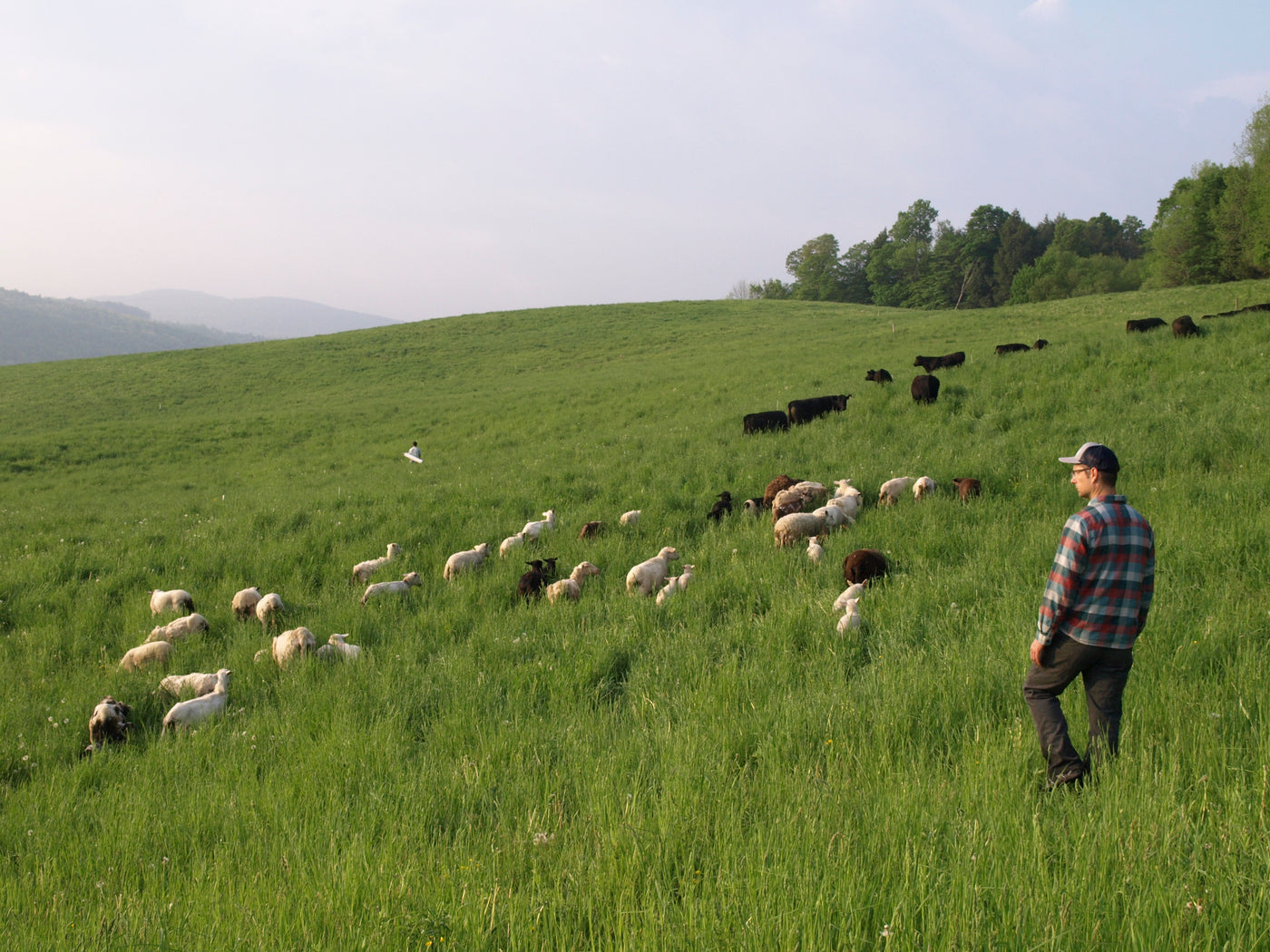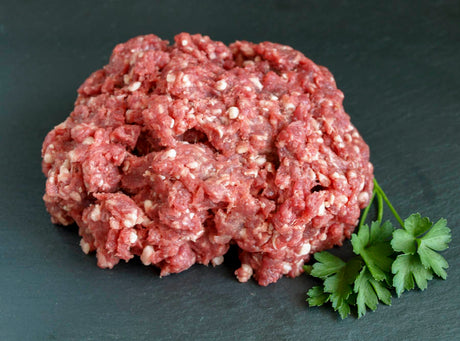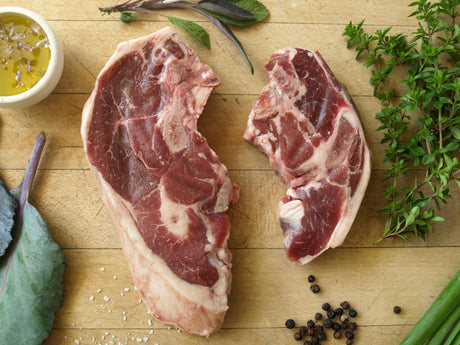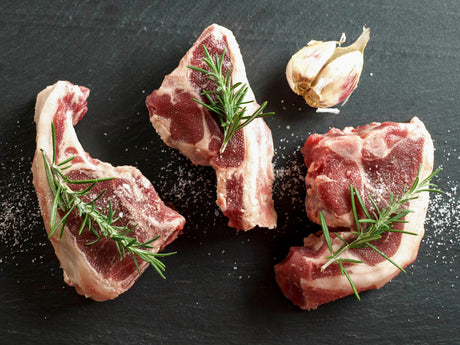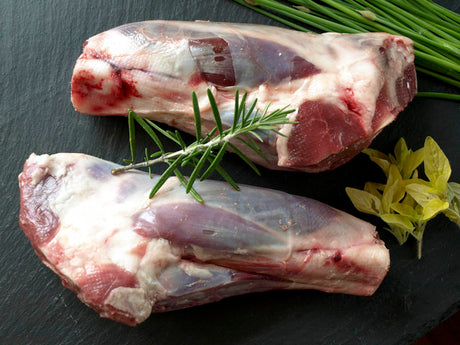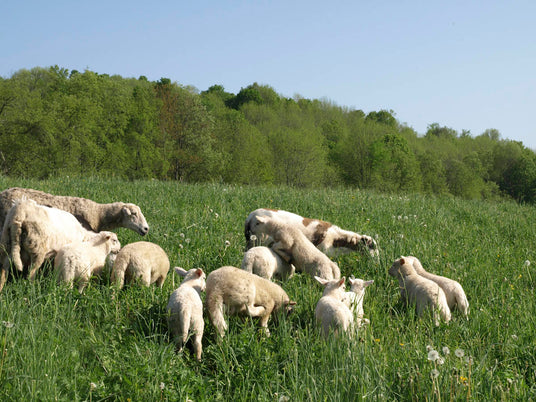
The right sheep
I raise Katahdins, a breed of sheep that was developed in Maine beginning in the 1950s. Katahdins are hair sheep, which means they do not need to be sheared. Instead, like wild sheep, the thick coat that keeps them warm through the winter sheds away as spring sets in. The are vigorous, hearty sheep that thrive on a 100% grass fed and grass finished diet. Further, the meat of Katahdin lamb is at once mild and complex. It is rich and flavorful, never gamey.
100% grass fed, grass finished lamb
View all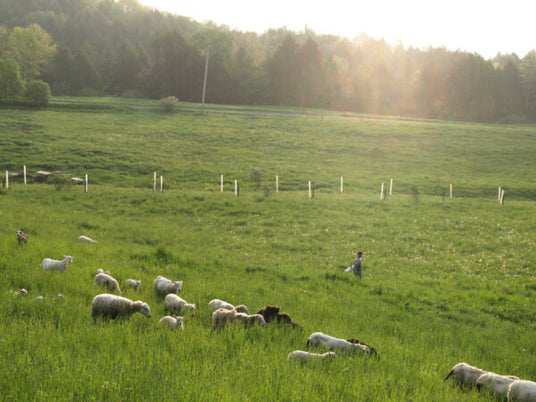
Synergistic sheep
One reason sheep work so well with cows is that they favor different species of plants. Sheep will actively seek out goldenrod and milkweed, which cows generally avoid. When it comes to bushes and brush, sheep will browse back branches and strip bark from trunks. Together, sheep and cows transform scrub and marginal land into beautiful pasture much more effectively than either could do alone. Compared to my cows, I have a pretty small sheep herd. I expect them to eat perhaps a tenth the amount of grass my cows do. Yet the impact the sheep have on pasture quality is outsized.

